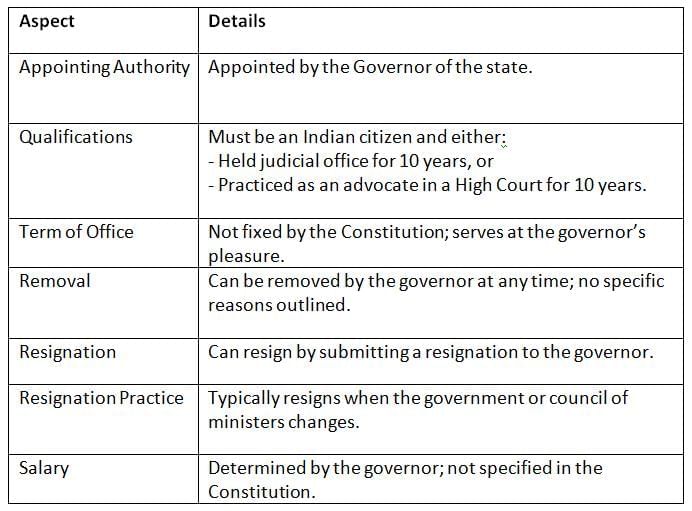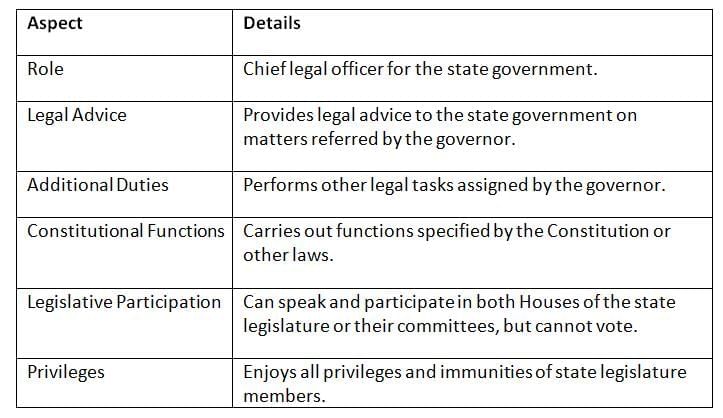Cheat Sheet: Advocate General of the State | Indian Polity for UPSC CSE PDF Download
Introduction
This chapter outlines the role, appointment, duties, and rights of the Advocate General, the highest legal officer in a state, as established by Article 165 of the Constitution. It serves as a concise guide to understanding the Advocate General’s position, qualifications, and functions within the state government and legislature.
Appointment and Term
The Advocate General is a critical legal figure appointed to assist the state government. The Constitution sets clear qualifications for the role and outlines the appointment and removal process, though some aspects, like term length and salary, are flexible and determined by the governor. Key Points: The Advocate General’s appointment is at the discretion of the governor, with no fixed term or constitutional guidelines for removal. The role requires significant legal experience, and resignation often aligns with changes in the state government.
Key Points: The Advocate General’s appointment is at the discretion of the governor, with no fixed term or constitutional guidelines for removal. The role requires significant legal experience, and resignation often aligns with changes in the state government.
Duties and Rights
As the state’s chief legal officer, the Advocate General advises the government and participates in legislative processes. The role includes specific duties assigned by the Constitution and the governor, along with certain privileges in the state legislature.
Key Points: The Advocate General’s primary duty is to provide legal guidance to the state government. They also have a unique role in the state legislature, with the ability to participate in discussions but not vote, alongside enjoying the same privileges as legislators.
Conclusion
This chapter highlights the Advocate General’s pivotal role as the state’s top legal officer, appointed by the governor to provide expert legal advice and perform constitutional duties. Understanding the Advocate General’s qualifications, flexible tenure, and legislative privileges is essential for grasping their contribution to the state’s governance and legal framework.
|
151 videos|780 docs|202 tests
|
FAQs on Cheat Sheet: Advocate General of the State - Indian Polity for UPSC CSE
| 1. What is the role of the Advocate General of the State? |  |
| 2. How is the Advocate General appointed and what is the term of office? |  |
| 3. What qualifications are required to become the Advocate General of a State? |  |
| 4. What are the rights and privileges of the Advocate General? |  |
| 5. Can the Advocate General be removed from office, and if so, how? |  |



















